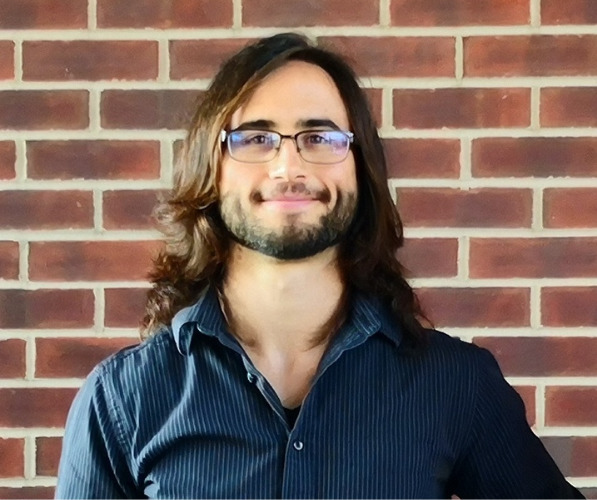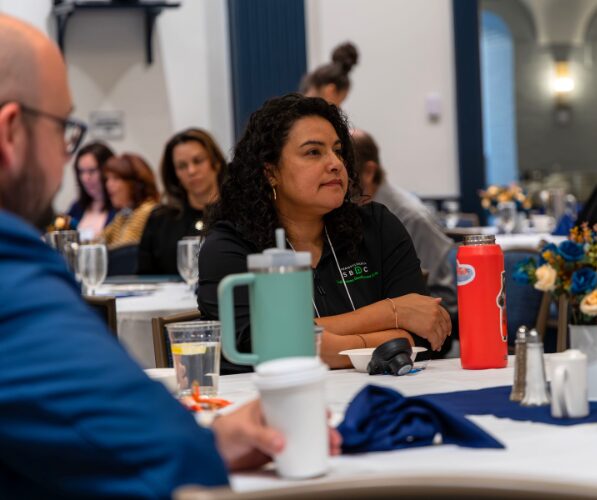Success Story
Tech Tournament Winner Works to Increase Speed to Market of Lifesaving Drugs
As pharmaceutical manufacturers race to claim first-to-market position for their drugs, approximately 20 percent of their biologic products experience delays or outright failure during late-stage production, costing them millions and delaying patient care.
Failures often occur because of the inherent limitations of the pharmaceutical industry’s standard testing for predicting solubility (the ability of a solid, liquid or gaseous chemical substance to dissolve in a solvent, such as a liquid, and form a solution).
A more accurate and faster small-scale screening technology, however, could better evaluate drug behavior, significantly improving drug selection and optimization.
That’s according to Brad Rogers, PhD. He, alongside his colleagues at the Penn State Eberly College of Science, Paul Cremer, PhD, and Tinglu Yang, PhD, developed an industry-disruptive temperature device allowing for faster and more accurate stability screening for scientists. They hope it will enable them to accelerate and improve predictions associated with biopharmaceutical shelf-life and, ultimately, reduce biologic drug failure by up to 25 percent.
The team’s resulting startup, GradienTº, was recognized at the recent spring 2021 virtual Invent Penn State Tech Tournament, where it took second place and a cash award of $50,000.
“GradienTº’s lab-on-a-chip technology predicts whether a candidate drug will be sufficiently soluble and stable during the early stages of development, thus averting expensive problems later on,” Tech Tournament judge and CEO at Vesper Medical Bruce Shook said. “GradienTº is poised to reduce one of the big risks in drug development and is already collaborating with major pharma companies to make that a reality.”
While the basis for this type of technology has existed since the 1950s, Rogers and his colleagues were able to make it faster, using a smaller volume of material and providing more robust information.
Rogers credits the early work of Yang, who first developed their theory in the early 2000s of applying temperature gradients to pharmaceuticals for testing. While there was some early recognition for the idea, it sat on the proverbial shelf for more than a decade.
“The thought process for temperature gradient technology was shared with me by a former student years ago. I thought it was a great idea and have continued to work on several versions since 2013,” said Yang. “Our initial test was completed on top of a toaster oven and within one day we built our first device. With each prototype, my goal is to improve on its size and efficiency by making it less bulky and super quick.”
To navigate the process of turning their research into a marketable product, GradienTº found support with Invent Penn State and the University’s broader entrepreneurial ecosystem.
In addition to winning second place in the 2021 Tech Tournament, the startup team received a $2,500 award in the Ben Franklin TechCelerator pitch competition in 2020.
“The Ben Franklin TechCelerator helped us learn how to pitch our solution to investors and pharmaceutical companies,” said Rogers. “Meeting with small groups of mentors and other entrepreneurs on a weekly basis helped us refine our messaging and value proposition.”
Rogers, who earned his degree in physical chemistry in 2019 from the Eberly College of Science, also credits the work of Jim Pietropaolo, associate director of the Office of Entrepreneurship and Commercialization, who helped GradienTº participate in the National Science Foundation (NSF) I-Corps program. The program helps inventors begin customer discovery, learn about the commercialization process, network with experienced entrepreneurs to determine if a market exists for their innovation.
GradienTº’s technology has already been evaluated in two collaborations with top-ten pharmaceutical companies. With $250,000 in funding from the NSF, the startup is now poised to advance development of its machine prototype.
“The funding allowed us to get out of the building and talk with upwards of 100 potential customers – formulation scientists whose job is to take a promising drug and move it forward while keeping it shelf-stable and viable,” Rogers said.
Through Pietropaolo, Rogers connected with the Startup Leadership Network’s Board of Advisors program, which provides a virtual board of directors comprised of successful alumni and others who regularly meet with Penn State startups to help them navigate next steps toward commercialization.
Rogers also said Dustin Ritter, Technology Licensing Officer at the Penn State Office of Technology Management, guided GradienTº through the patent-application process.
“Consistent with our mission to protect Penn State intellectual property, the Office of Technology Management worked with the inventors to identify the protectable aspects of the temperature gradient microfluidics system and file patent applications in the United States and Europe to protect what we view as a potentially valuable technology for biopharmaceutical developers,” explained Ritter.
Beth Johnson from the Eberly College of Science also assisted GradienTº, serving as a liaison on technology licensing. Eberly provided GradienTº with $80,000 in funding via Lab Bench to Commercialization, a grant program for researchers with official appointments in the Eberly College of Science.
As the GradienTº prototype becomes a reality, Rogers and his team are eager to expand their work with pharmaceutical companies to help bring lifesaving and life-sustaining drugs to people around the world.






